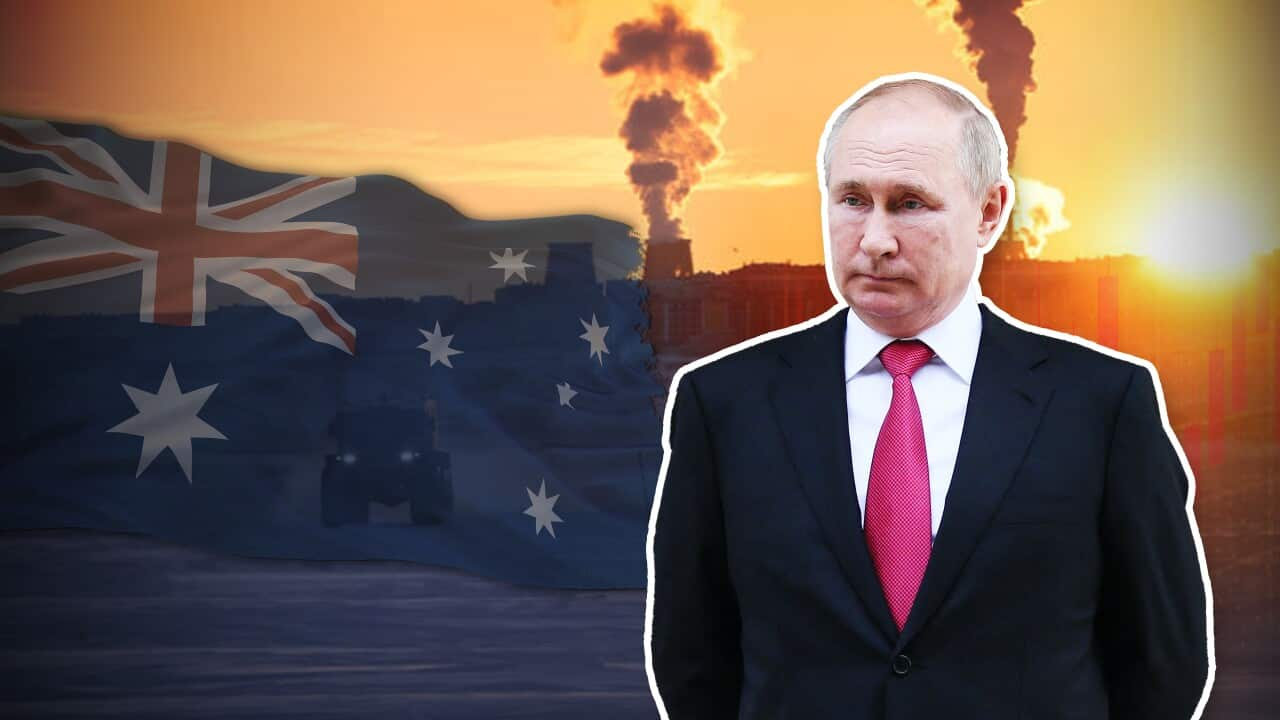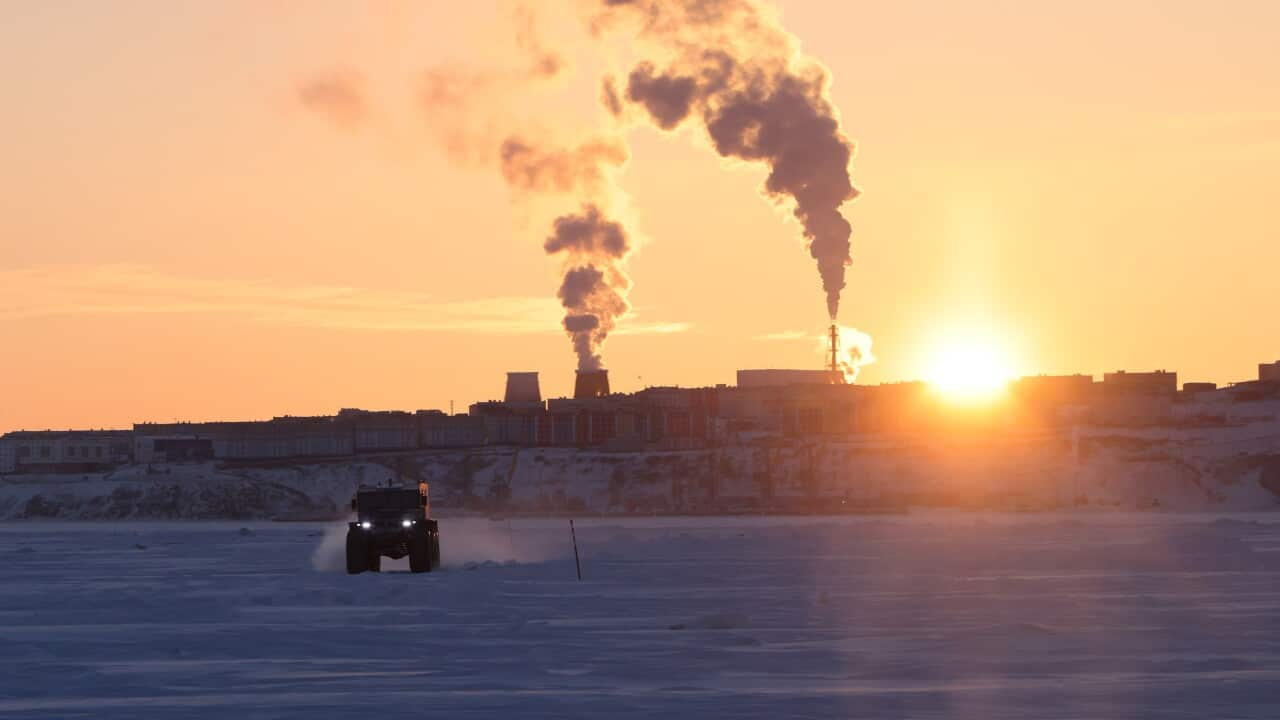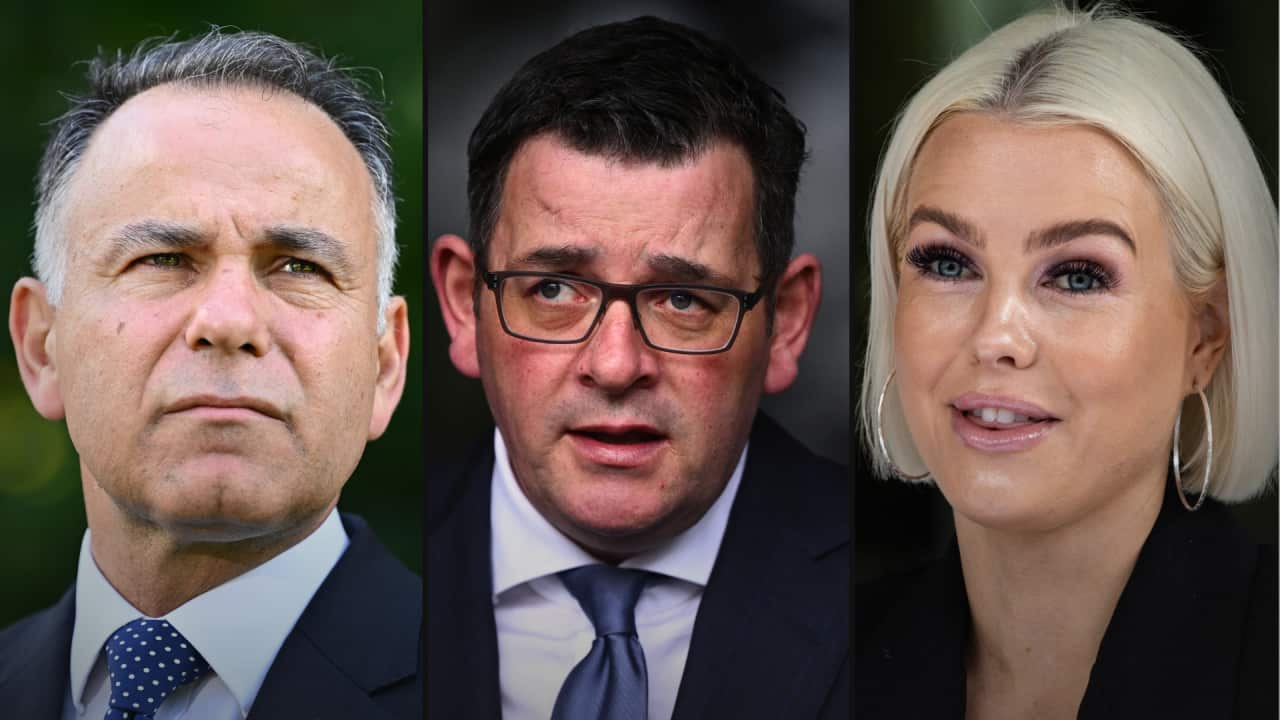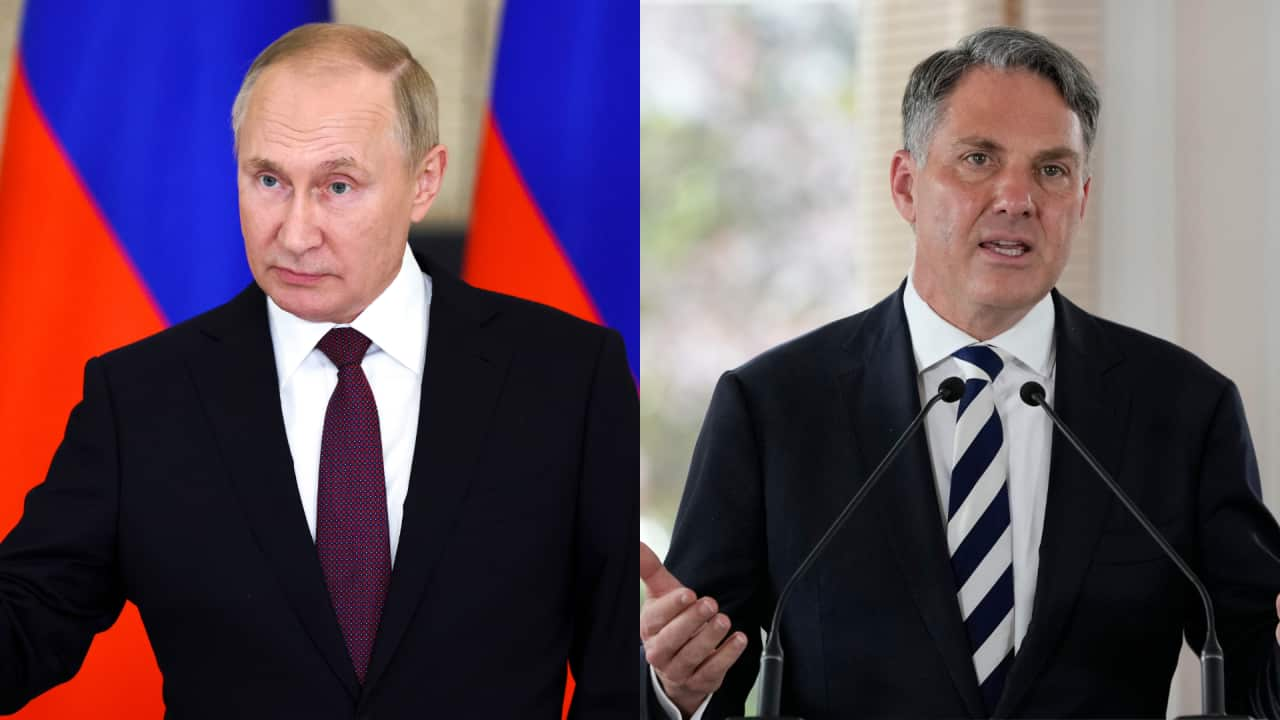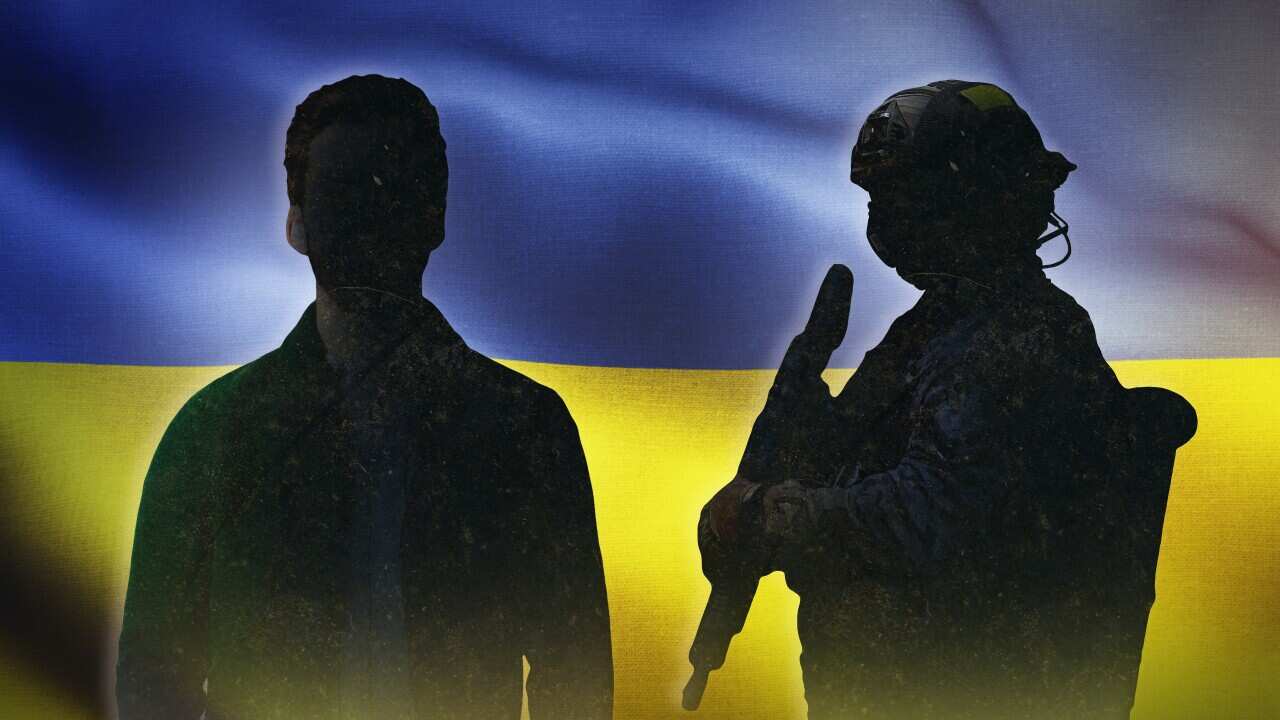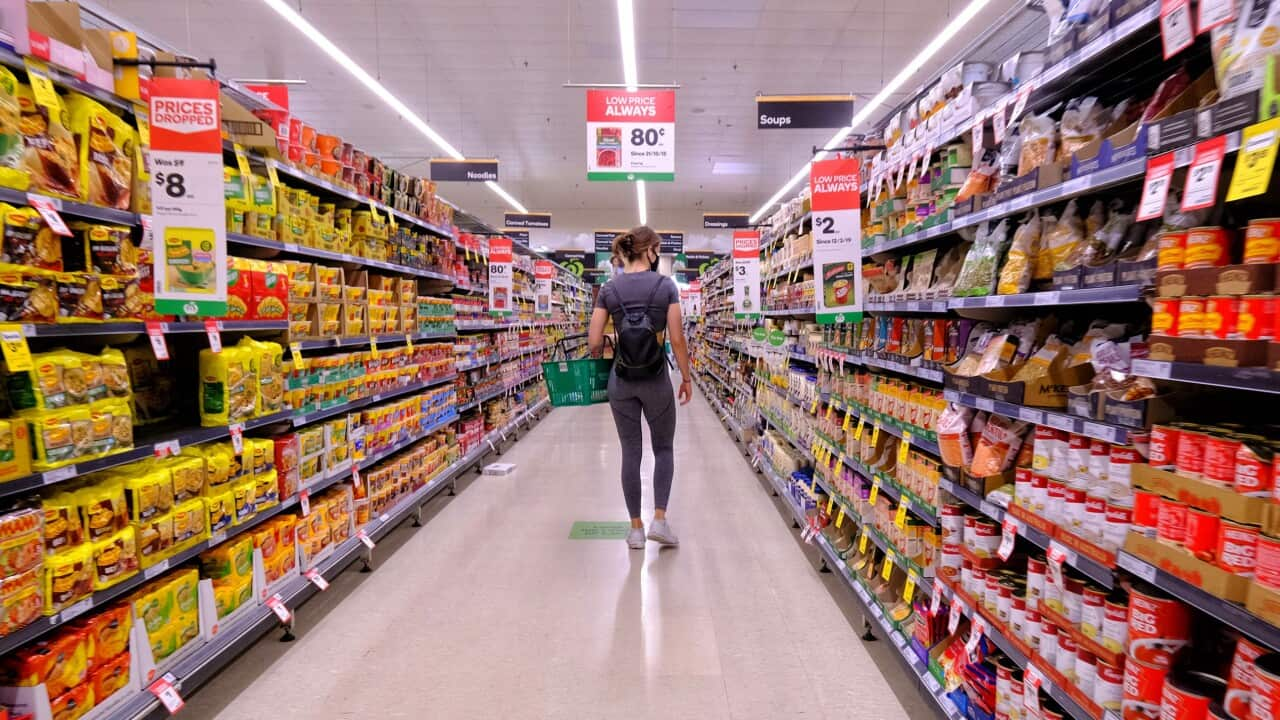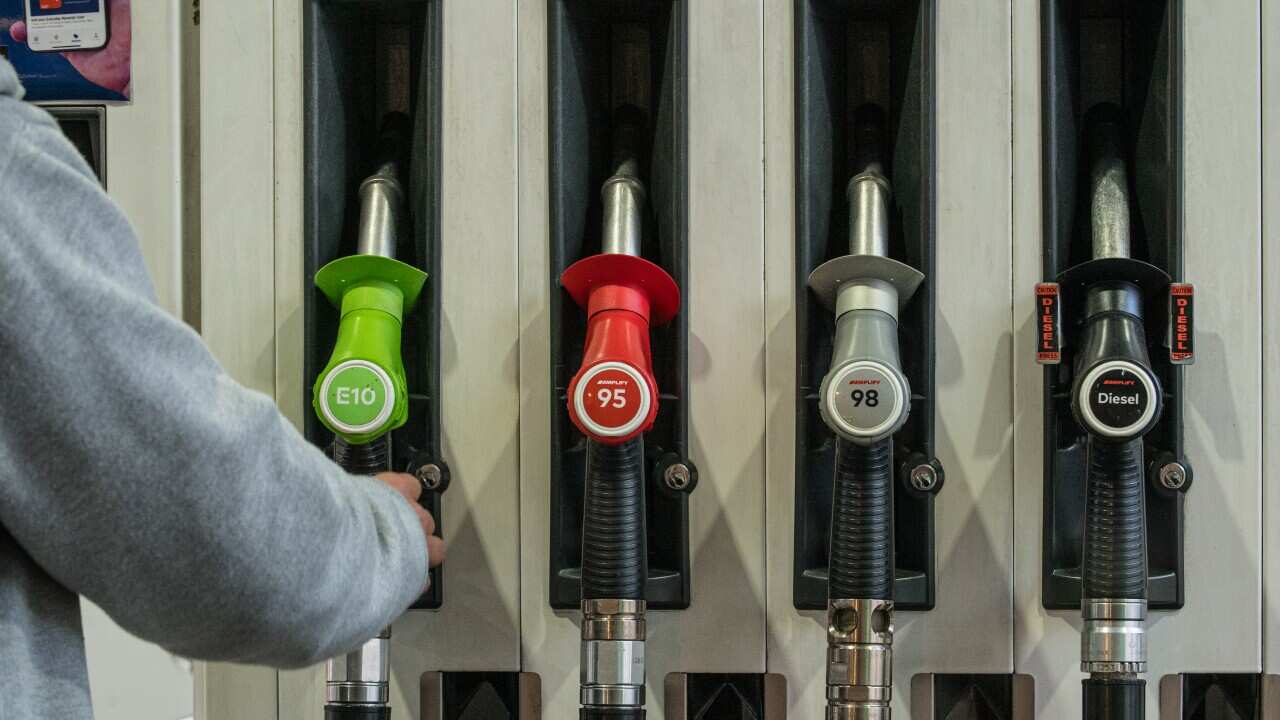Australia was among the countries that expanded sanctions against Russia following its
These sanctions range from travel restrictions for some Russian individuals to export and import bans on certain goods to and from Russia.
By late 2023, Russia had become the most sanctioned country in the world.
The purpose of such sanctions is to achieve "policy change in the targeted country," Christopher Michaelsen, associate professor at UNSW's Faculty of Law and Justice, told SBS News.
"In respect to Russia, as you can see in the context of Ukraine, the purpose is to make life more difficult for Russia and to push them towards ending the conflict there — and at this point, returning to the table to find a diplomatic negotiation or solution."
But recent challenges to Australia's Russian sanctions regime have prompted experts to question whether it's strong enough.
Russia: Building a 'sanctions-proof economy'
Australia imposed 'autonomous' sanctions against Russia in response to "the Russian threat to the sovereignty and territorial integrity of Ukraine", according to the Department of Foreign Affairs and Trade (DFAT).
In this context, 'autonomous' means the sanctions are unilaterally imposed by Australia and may supplement — or be separate from — any mandated by the United Nations Security Council.
Various sanctions on Russia have been rolled out since its annexation of Crimea in 2014. These were extended in 2015, 2022 and 2023.
However, Russia has learnt to adapt, experts say.

Further sanctions were rolled out worldwide following the start of Russia's full-scale invasion of Ukraine. In this picture, destroyed houses are seen after Russian shelling in Soledar, in the Donetsk region. Source: AAP / Andriy Andriyenko/AP
"They call this policy the 'Fortress Russia' policy, and it's a policy that has sought to diversify trade ... specifically building up trade with China."
Attempts to circumvent sanctions are referred to as "sanctions busting".
"This involves Western companies evading the sanctions regimes," Michaelsen said.
"There is quite a bit of evidence to suggest that even in the first year of the war, in 2022, there's about US$777 million ($1.19 billion) in computer equipment that made it into Russia, despite the application of Western sanctions on these types of equipment."
Challenges to Australia's Russia sanctions regime
There are no publicly known cases of Australian companies deliberately trying to evade the sanctions regime to continue trading sanctioned goods with Russia.
But there have been at least three known challenges to Australia's sanctions — and all three have failed.
Experts suggest these challenges could highlight gaps in Australia's regulations.
Most recently, ASX-listed Australian company Tigers Realm Coal on its activities in Russia.
It has been mining coking coal in Russia and selling it to Asian markets since 2017.
The company's operations are based in the Arctic region of Chukotka, where it holds two exploration licenses. It also owns a port and coal terminal in close proximity to the mine.
Last April, that Tigers Realm's operations may be in breach of Australia's sanctions laws, a claim the company refuted.
The company argued in the Federal Court in March that it only produces and transports coal within Russia and the ownership of the product ends at the port.
It claimed Australian sanctions only target cross-border transport.
Melissa Chen, a senior lawyer at the Australian Centre for International Justice (ACIJ), said the company's application "rested on the definition of 'transport' within the Autonomous Sanctions Regulations (Act)".
"What the court found is that Tigers Realm's narrow interpretation of transport could not be upheld, that instead the ordinary meaning of transport should be accepted and therefore the activities of Tigers Realm's Russian subsidiaries in Russia … are in fact captured by Australia's sanctions laws."

Tigers Realm Coal's operations are based in the Arctic region of Chukotka, Russia. Credit: Contributor/Getty Images
APM Invest is owned by Russian mining tycoon Mark Buzuk, who allegedly has links to a number of Russian oligarchs.
Tigers Realm also stated that it planned to return capital raised from the sale to shareholders.
One of these shareholders is the Russian Direct Investment Fund (RDIF), which is owned by the Russian government.
Clancy Moore, chief executive of advocacy group Transparency International Australia, said the RDIF has been sanctioned by Australia and "has been labelled a slush fund for (Russian President) Vladimir Putin".
"Given the nature of this case and the potential sale, I would expect Australia's regulators, including the sanctions office, to put the proposed sale under the microscope and look very carefully at the details of the sale and where the money is going," Moore said.
Tigers Realm has since announced it will hold a general meeting on 28 May, where shareholders can vote on several resolutions, including the proposed sale.
It stated in the notice that "any return of capital will only be made in compliance with all applicable laws, including the Sanctions Regime".
It did not respond to SBS News' request for comment.
A spokesperson for DFAT told SBS News that "the Commonwealth is considering all relevant options with regards to compliance" but said it couldn't comment on "specific compliance matters".
Are Australia's sanctions against Russia strong enough?
Anton Moiseienko, a senior law lecturer at the Australian National University, suggested the Tigers Realm case is an example of how Australia's regulations could evolve.
He questioned whether there should be a "separate provision that deals specifically with the situation of Australian companies that manufacture goods, even if those products are never then moved to Australia but are sold elsewhere on the world's market."
Experts argue the international community, including Australia, should also consider diversifying its sanctions regime to reach countries such as China.
"China is not targeted by any sanctions regime. They are also not part of those countries that apply sanctions to Russia," Michaelsen said.
"The Russian-Chinese trade relationship has strengthened enormously over the past ten years."
The European Union has recently adopted a new package of sanctions against Russia which targets countries accused of aiding its war effort, including companies in China and India. Michaelsen argued Australia could follow suit with "secondary sanctions".
Last month, the government passed a bill to amend its Autonomous Sanctions Act to "explicitly confirm that individuals and/or entities can be validly sanctioned based on past conduct or status".
The proposed amendment referenced two recent decisions regarding two Russian nationals sanctioned by the Australian government.
One of them is Russian Oligarch Oleg Deripaska, founder of aluminium giant Rusal. He was sanctioned by Australia for his alleged links to Russian President Vladimir Putin, a claim he has refuted.

Russian oligarch Oleg Deripaska. Source: AFP / Natalia Kolesnikova
SBS News contacted Deripaska's legal counsel for comment but did not receive a response.
The case of Russian billionaire Alexander Abramov was also listed in the proposed bill. The steel mogul lost his bid to lift Australian sanctions in September last year.
"There does seem to be this growing trend of oligarchs and companies trying to challenge different countries' sanctions laws and essentially continue doing business," Moore said, calling this "really worrying".
The DFAT spokesperson said: "Australia continues to hold Russia to account for its illegal invasion of Ukraine. Our comprehensive suite of sanctions and trade measures are designed to ensure Australian businesses do not directly or indirectly support Russia's war effort.
"Australian businesses operating in Russia should undertake appropriate due diligence."
Concerns over 'lack of transparency'
Chen, from the ACIJ, also argued that a "real lack of transparency" exists "in terms of what precise investigative or regulatory actions are happening behind the scenes".
According to Chen, the Australian government has imposed sanctions on more than 1,000 individuals and entities, as well as sanctions on various goods.
"But, in terms of enforcement, there has been much less attention given to exactly how Australia is enforcing those thousands of sanctions," she said.
"Lack of accountability breeds impunity ... if there is a lack of enforcement of these legal measures, then there is no incentive, no deterrence for other actors who may also be looking to breach those laws."
Lera Shvets is a producer at SBS Russian.
